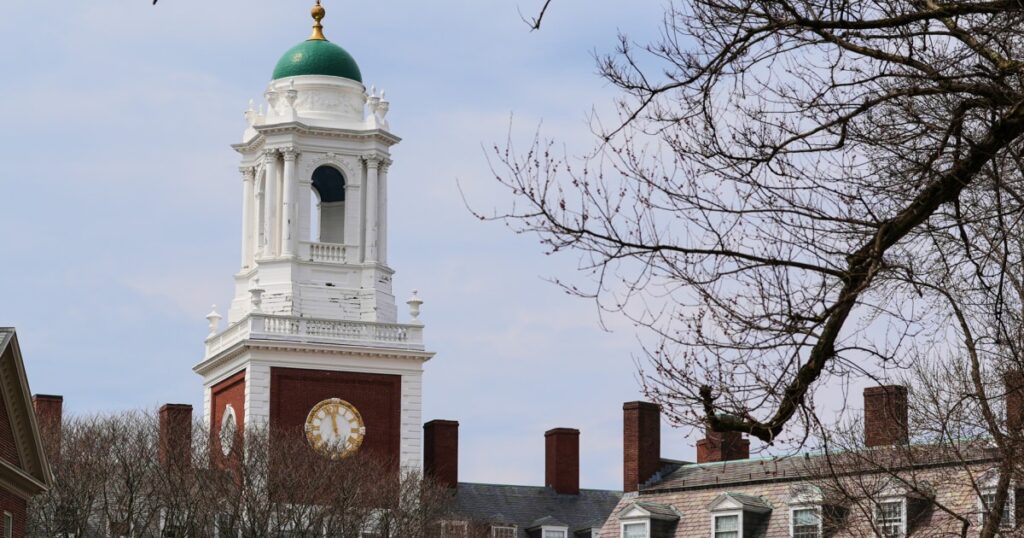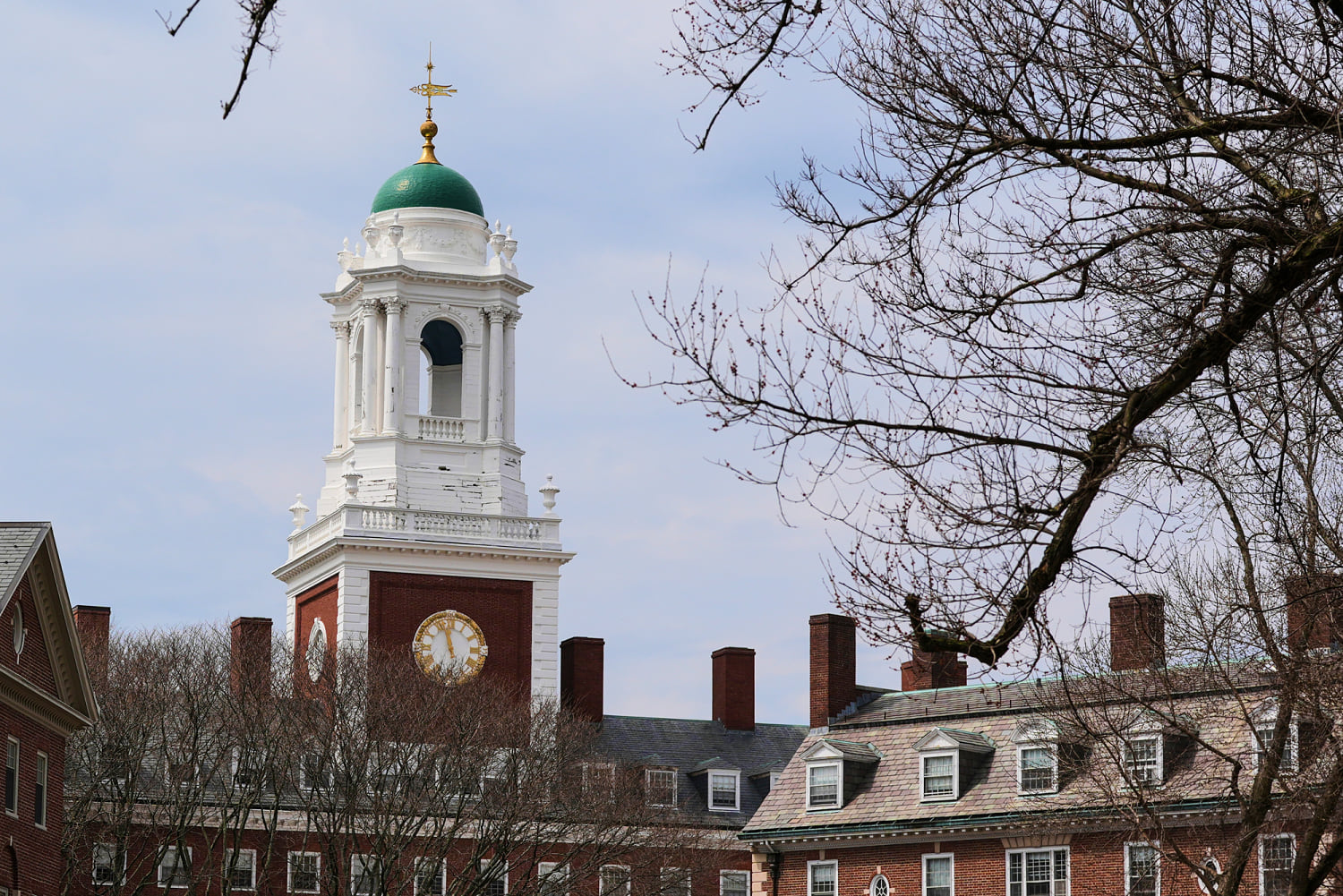

Graduating students of color at Harvard University and other colleges across the country would end their semester by attending affinity graduation ceremonies — but this year, they had to organize these celebrations without the school’s financial backing.
Harvard, currently battling the Trump administration over a range of issues, halted all of its affinity ceremonies for students this year. This left alumni stepping in to raise funds and students scrambling to find new spaces.
Members of the Harvard Black Alumni Society raised $46,000 for this year’s event after the university announced April 28 that it would no longer fund the ceremonies.
“This rapid response from our alumni network demonstrates the strength and commitment of our community,” Alana Brown, the society’s university relations chair, said in a statement earlier this week.
An attendee of Harvard’s canceled Lavender Graduation, which celebrates LGBTQ students, said on Facebook that a small group of students had organized an independent event.
“It was a beautiful mix of #lgtbqia young people and elders,” the attendee, Peter Khan, added. “It was an honor and privilege to be there.”
Harvard’s Asian American Alumni Alliance said on Facebook that its ceremony was important for students to experience because they provide space for recognition, solidarity, and community in the face of uncertainty. The alliance said the ceremony took place as the Trump administration announced plans to revoke student visas for international students at the university.
These actions come as the Trump administration this week asked federal agencies to potentially end their contracts with the university, worth an estimated $100 million in funding. These threats follow President Donald Trump’s executive order ending federal spending toward DEI, which he calls “radical and wasteful.”
Affinity graduations at most higher education institutions are usually optional and supplement the main commencement ceremony. They are meant to honor students’ academic achievements and cultural identities, specifically those from communities that have “historically been denied access to higher education because of who they are,” according to the Leadership Conference Education Fund, a civil rights policy think tank. This includes disabled students, people of color, Jewish and first-generation students, among others.
The university joins many others across the nation that have canceled affinity graduations after the federal crackdown on funding for colleges. Notre Dame canceled its Lavender Graduation for 50 LGBTQ students, with members of the university’s Alumni Rainbow Community and the Notre Dame Club of Greater Louisville stepping in to host an independent ceremony this month.
Wichita State University, the University of Louisville and the University of Kentucky also canceled some or all of its affinity ceremonies. The Hispanic Educators Association of Nevada said it canceled its event for Latino students because of a lack of financial support.
Harvard University did not respond to NBC News for a request to comment. Earlier this year, the college announced it would “no longer provide funding, staffing, or spaces for end-of-year affinity celebrations. Under the new auspices of Community and Campus Life, the University is building inclusive traditions that reflect the richness of every student’s experience and reinforce our shared identity as one Harvard community.”
Jean Beaman, an associate professor of sociology at the Graduate Center of The City University of New York, said affinity graduations also recognize the range “of challenges and obstacles that students who come from various minoritized populations at predominantly white institutions face as they work towards their degrees.”
One example she cites is affinity graduations for Black students, which speak to “the ways that our accomplishments are not just ours, but also something in line with that of our ancestors and the hurdles of our ancestors, and making that more central to the festivities that you would have in a ‘typical’ graduation.”
Beaman calls the affinity graduation cancellations nationwide “a very disturbing development,” since she said many seem to be acting based on Trump’s executive orders and not on the law.
“It’s a way in which institutions of higher education are participating in anticipatory obedience,” Beaman said.
The Maricopa County Community Colleges District in Arizona canceled a ceremony for Indigenous students within the past few weeks, citing “new enforcement priorities set by the U.S. Department of Education’s Office for Civil Rights,” which affect “programs and activities that focus solely on race, identity, or national origin,” according to an email obtained by NBC News.
Collin Skeets, a member of the Navajo Nation who received his associate degree in secondary education this month from Mesa Community College, said that “it was pretty heartbreaking” and that he even shed some tears over the cancellation. Once again he said he felt like he was again being told “no” after the history of hardships his own Indigenous ancestors had endured in continuing their education.
“Just knowing that I was able to graduate was just an unbelievable feeling, it’s hard to put into words,” said Skeets, who is 36 and a first-generation college student. He said he was looking forward to wearing his traditional clothing to graduation and celebrating with other Indigenous students.
Eventually the Salt River Pima-Maricopa Indian Community intervened, holding a ceremony on its reservation near Scottsdale. Skeets said he felt “so much better” knowing he could share the experience with family and even spoke at the ceremony
“Things kind of fell through at first but then came back and all meshed together in a way that I was able to celebrate with family again and achieve this milestone in my life,” he said.
Beaman of CUNY said she hopes schools will “put their foot down” against the cancellations in the future. Holding affinity graduations off-campus is a “testament of their will and determination,” she said of students, adding that it likely helped them obtain their degrees.
“It’s also a reminder that — both presently and historically — students have often had to be the vanguard of change in institutions of higher education, particularly predominantly white institutions, and I see this as no different from that.”
 Latest World Breaking News Online News Portal
Latest World Breaking News Online News Portal






